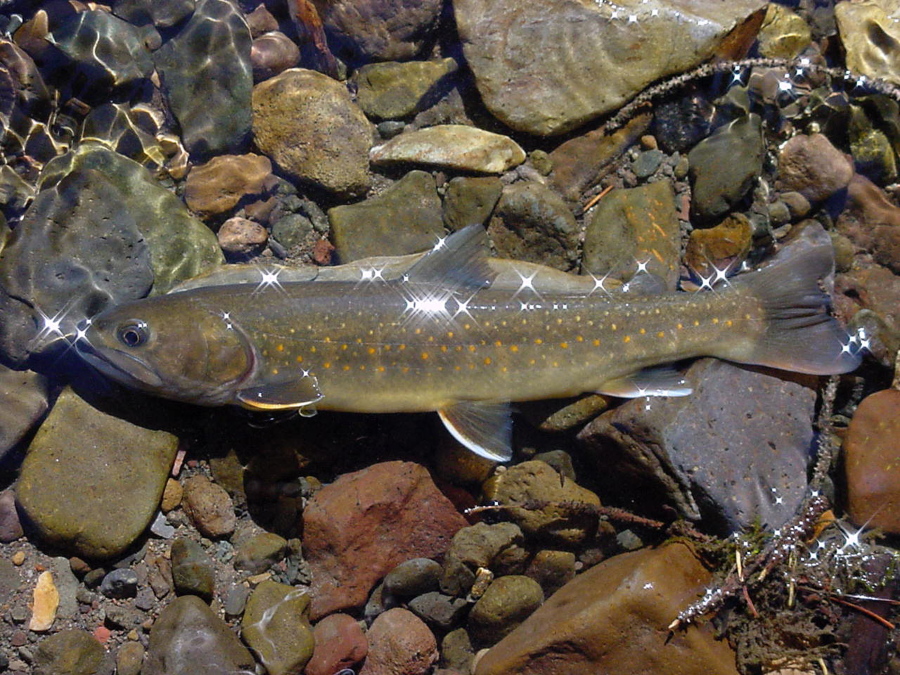BOISE, Idaho — A federal lawsuit filed by an environmental group seeking to force federal agencies to analyze whether about two dozen dams operating in Idaho, Oregon, Washington and Montana are harming bull trout has been dismissed.
U.S. District Court Judge Marco Hernandez in a ruling last week said federal agencies took action after the lawsuit was filed in July that met demands made by Montana-based Alliance for the Wild Rockies, meaning there was no need for the lawsuit to move forward.
The lawsuit against the U.S. Army Corps of Engineers and U.S. Bureau of Reclamation sought to force the agencies to complete consultations with the U.S. Fish and Wildlife Service on how to operate the dams in areas designated as critical bull trout habitat.
Specifically, the lawsuit contended the agencies failed to write biological assessments for many of the dams pertaining to bull trout and required following the 2010 designation of critical habitat for the species in the four states and a small portion of Nevada.
The federal agencies in their motion to dismiss the lawsuit said those consultations have now been started or reinitiated for all the dams.
“We are thrilled that the agencies finally did what they were supposed to do in 2010, which was to consult with the Fish and Wildlife Service to ensure that these dams don’t harm bull trout critical habitat,” Mike Garrity, executive director of Alliance for the Wild Rockies, said in a statement.
The lawsuit also included the Bonneville Power Administration, but Hernandez dismissed that agency from the lawsuit after ruling the court didn’t have jurisdiction. The 9th U.S. Circuit Court of Appeals has exclusive jurisdiction over such claims against the BPA, Hernandez said.
The lawsuit named 26 dams that include the four large dams that span the Columbia River where it forms the border between Oregon and Washington state. Four Snake River dams in Washington state are also named. Idaho and Montana have two dams each named in the lawsuit, and additional dams are listed in Oregon’s Willamette Basin, which feeds into the Columbia River.
The ruling dismissing the lawsuit also removed four of dams, all in the Willamette Basin, because they didn’t have critical bull trout habitat.
The next step in the process is for the consultations among the federal agencies to be completed followed by the U.S. Fish and Wildlife Service producing biological opinions about whether the dams are harming bull trout in critical habitat.
The timing for that process isn’t clear. Timothy Bechtold, an attorney representing the environmental group, said Wednesday that if no biological opinions appear after a year, a lawsuit might be filed against Fish and Wildlife.
“The Fish and Wildlife Service looks forward to continuing our ongoing consultations and other bull trout conservation efforts with our partners, including US Army Corps of Engineers, Bonneville Power Administration and Bureau of Reclamation,” the agency said in a written statement.
Michael Coffey of the U.S. Bureau of Reclamation and Scott Lawrence of the U.S. Army Corps of Engineers didn’t immediately return calls on Wednesday.
Bull trout evolved with salmon after the last ice age and preyed on young salmon and salmon eggs. But bull trout have declined along with salmon, and they were listed as threatened in the lower 48 in 1999. Bull trout now only occupy about 60 percent of their former range.
Threats to the cold-water species include warming water caused by climate change, isolated populations, hybridization with non-native brook trout, and competition from non-native lake trout, according to experts.
“The Fish and Wildlife Service looks forward to continuing our ongoing consultations and other bull trout conservation efforts with our partners, including US Army Corps of Engineers, Bonneville Power Administration and Bureau of Reclamation,” the agency said in a written statement.



